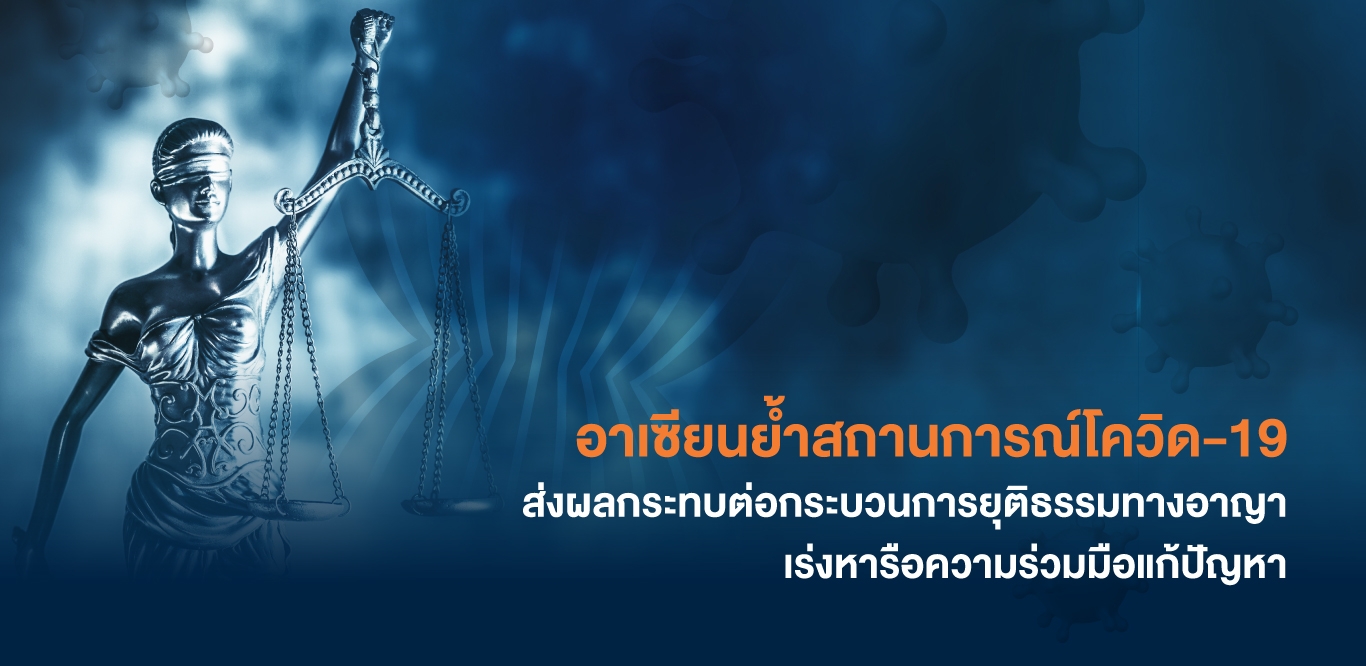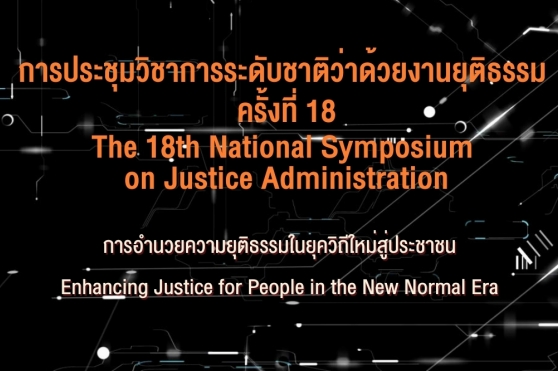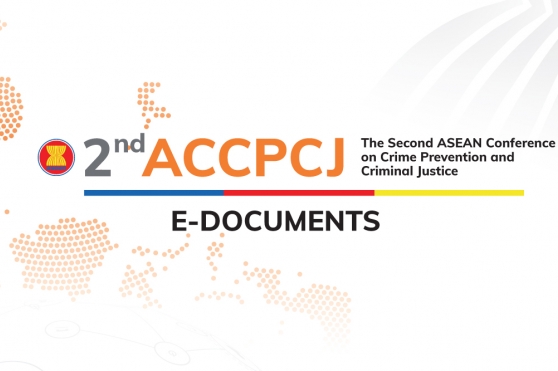ASEAN Confirms COVID-19 Affects Criminal Justice System, Countries Expedited Discussion for Collaboration
The seriousness of the COVID-19 pandemic continues to affect the economy, society and well-being of the global population. Even more so than others, the pandemic affects the development of the criminal justice system both at the national and ASEAN levels.
Dr. Phiset Sa-ardyen, the Executive Director of the Thailand Institute of Justice (TIJ) expressed his concerns on the multi-dimensional nature of the impact posed by COVID-19. Countries are now facing crimes on cyber security and prison overcrowding, worsening the already severe issues. The pandemic sends warnings to many countries, instigating the realization of the issues regarding human rights and the well-being of the inmates.
Part of the keynote speech delivered in the first Consultative Group Meeting (CGM) on the 7th – 8th September, held in preparation for the third ASEAN Conference on Crime Prevention and Criminal Justice (ACCPCJ) which will take place in August 2022 under the endorsement of ASEAN Senior Law Officials Meeting (ASLOM).
Miss Chontit Chuenurah, Director of Office for the Bangkok Rules and Treatment of Offenders of the TIJ, presented to the Meeting the overview of the overcrowding issue and the spread of COVID-19 in prisons and detention centers in the ASEAN member countries. According to the data as of July 2021, it was found that as many as 575,884 inmates from 122 countries had contracted COVID-19 and 4,082 deaths had been reported from 47 countries. The data illustrates that COVID-19 devastatingly affects the human rights and well-being of the inmates at the ASEAN level and globally.
The Meeting viewed that addressing the problems in the criminal justice system would require the collaboration between 3 pillars: ASEAN Political-Security Community, ASEAN Economic Community and ASEAN Socio-Cultural Community, as well as the coalition with multi-sectoral partner organizations.
Through the first and second ACCPCJ, Thailand and the TIJ have developed and improved collaboration with multiple countries in ASEAN to mutually drive forward many issues concerning the development of the criminal justice system. The main themes of both ACCPCJ were “Enhancing Crime Prevention and Criminal Justice Institutions for Sustainable Development of the ASEAN Community” and “Promoting the ASEAN Culture of Prevention for a Collaborative and Innovative Justice for All, with a particular focus of Cybercrime”, respectively. Both conferences were also opened for the youth representatives from the ASEAN member countries, in which they had the opportunities to express their thoughts, ideas and recommendations on the improvement of the criminal justice system in the ASEAN region.
The key recommendations of the youth representatives illustrated that the spread of COVID-19 has caused extreme public-health and economic crisis within the region. Even though there has been positivity in technological uptake, i.e. contact tracing and other economic-stimulating online platforms, technologies also pose certain negative effects. This is evidenced by the spread of fake news and the rise of cybercrimes. Hence, the youth representatives proposed that international legislation shall be developed to enable suppression and prevention of cybercrimes.
Furthermore, ASEAN youth representatives also recognized that the COVID-19 pandemic disproportionately and directly affects the vulnerable population including women, children and migrant workers. Therefore, they proposed that the relevant stakeholders shall recognize the importance of volunteering activities, i.e. improving digital literacy for underprivileged population or those in remote areas; providing beginner’s English education, as well as developing innovation that can improve their quality of life in terms of education and finance.
The conclusions derived from the discussion will be consolidated and discussed for further collaboration in the third ACCPCJ.






